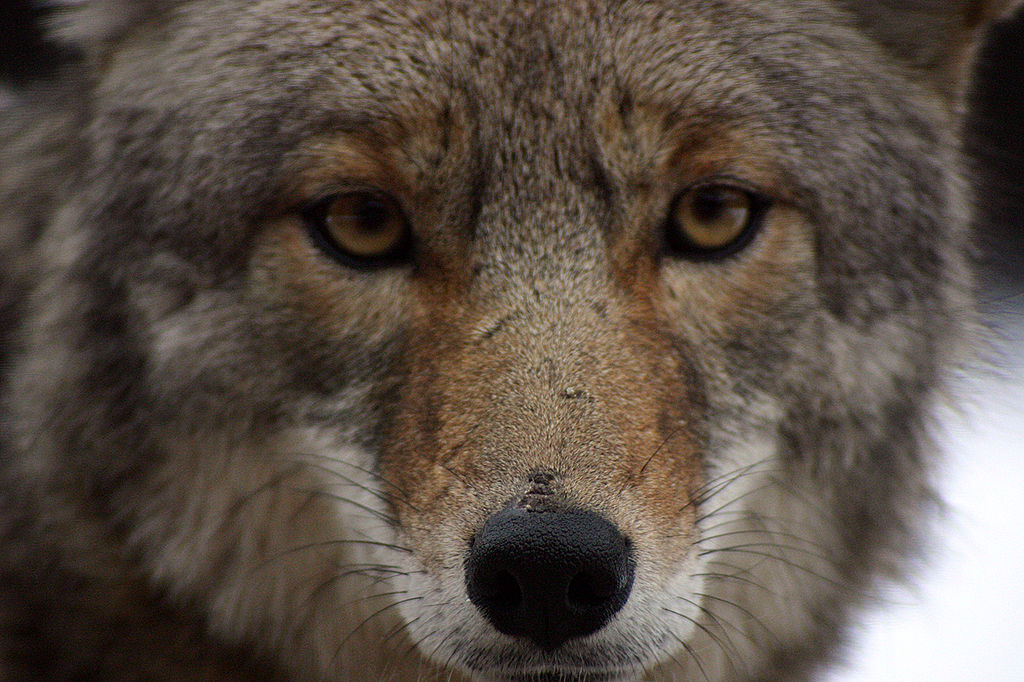At least 255 coyotes were killed in a single weekend in Harney County, Oregon last month. The incentive: Nearly $100,000 in cash and prizes.
This yearly coyote killing contest, dubbed the Harney County Coyote Classic, is one of many such events happening in Oregon — over two days, participants lose sleep in order to kill more coyotes than their opponents; the events are usually sponsored by local outdoor stores and gun dealers, who then donate prizes to the winners.
At this year’s contest, the winner killed 28 coyotes over two days, with at least 255 coyotes killed total. The participants weren’t limited to just Harney County either — teams split up into neighboring counties, as well as into parts of Nevada and Utah, according to information provided by the Harney County Sheriff’s office.
In an email, the president of the Harney County Farm Bureau, Thurston Inglis, said that the bureau hasn’t sponsored a coyote-killing contest in more than two years.
“The ones done lately were put on by local residents, and they did not ask for any sponsorship,” Inglis says. “As for the Farm Bureau position on these events, we have always been supportive as it is just another tool to help with our predator control in the county.”
This opinion echoes those of participants and supporters of the contests, who claim that the events are not solely for the glory of the hunters involved — although the prizes seem to imply otherwise — but for the overall health of the surrounding ecosystem. They claim that coyotes present inherent danger to both livestock and agriculture.
However, animal advocates around the country consider killing contests inhumane, and many states have already taken the step to ban coyote killing contests specifically. On Feb. 18, House Bill 4075 passed through the House of Representatives in a mostly bipartisan vote (42-16). The bill would make it illegal to kill a coyote with the objective of gaining cash or prizes.
Rep. Marty Wilde (D-central Lane and Linn counties) was a cosponsor of the bill, and Cedric Hayden (R-Roseburg) voted against it.
Scott Beckstead, who works as the rural outreach director for The Humane Society of the U.S., says he grew up in a hunting family.
“I was taught responsible hunting ethics by my father and others,” Beckstead says. “That you only killed what you intended to eat.”
Beckstead, who currently teaches a course on animal law at Willamette University in Salem, says that these killing contests act as more a bloodsport for overzealous hunters. Although the practice has been banned in other states, in Oregon it’s still legal.
“These killing contests are basically allowing one tiny little group of unethical hunters to waste a resource that belongs to all of us,” Beckstead says. “The vast majority of hunters are strongly opposed to this kind of practice, and yet there is nothing in the law to say that they can’t do it.”
California became the first of four states to ban coyote killing contests in 2014, followed by Vermont in 2018 and both New Mexico and Arizona last year. Beckstead notes that hunting laws outside of these contests have always remained untouched, even after the contests have been banned.
Beckstead encourages people to contact their state senators to urge them to vote yes on the bill.
“You’re eliminating the coyotes that are doing what they’re supposed to be doing,” Beckstead says, “which is preying on rodents and rabbits and other animals that damage crops. Whatever coyotes might be causing problems with livestock, the Oregon Department of Fish and Wildlife does not use killing contests as a management tool.”
